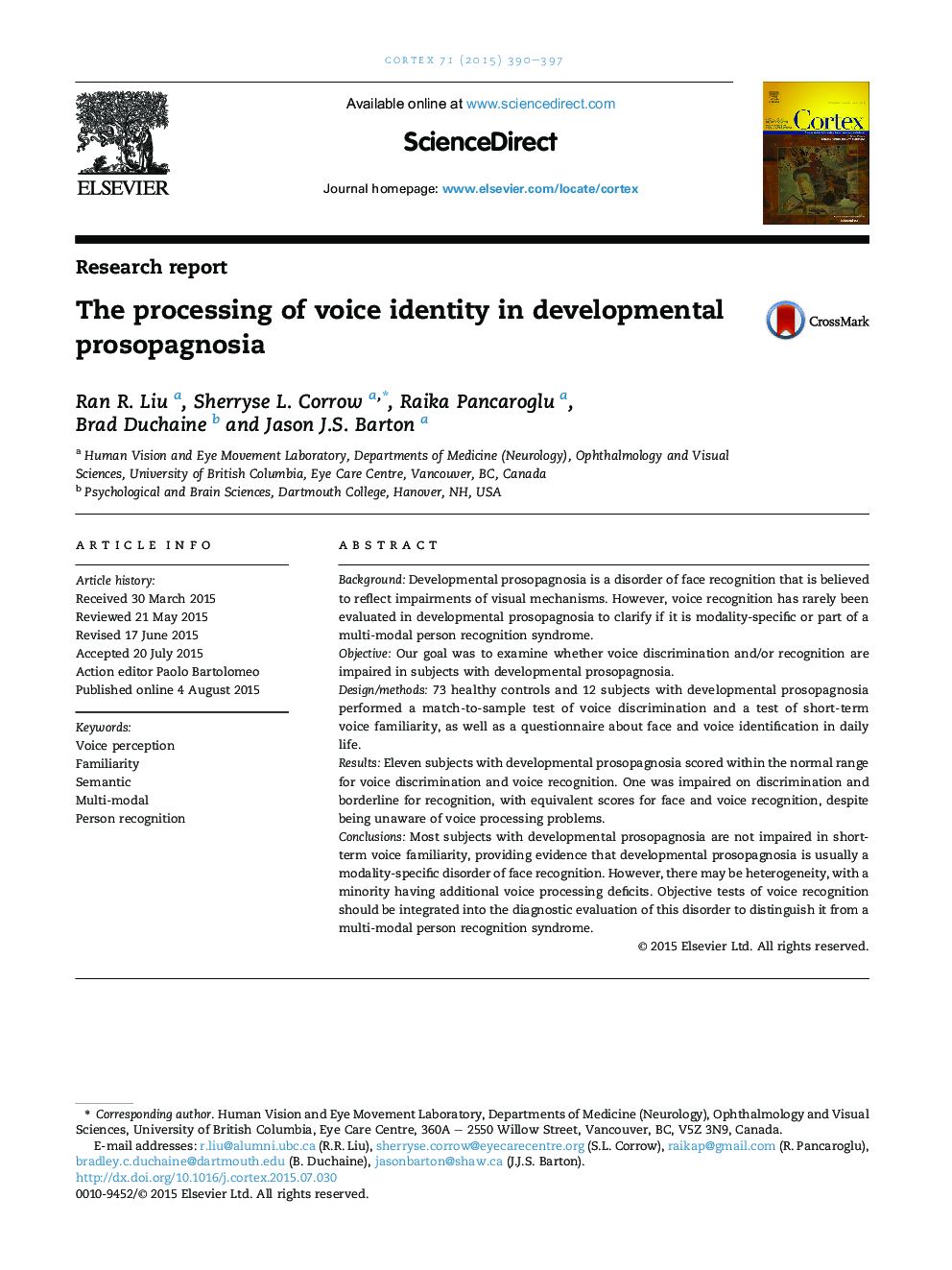| Article ID | Journal | Published Year | Pages | File Type |
|---|---|---|---|---|
| 7314264 | Cortex | 2015 | 8 Pages |
Abstract
Abstract
Background
Developmental prosopagnosia is a disorder of face recognition that is believed to reflect impairments of visual mechanisms. However, voice recognition has rarely been evaluated in developmental prosopagnosia to clarify if it is modality-specific or part of a multi-modal person recognition syndrome.
Objective
Our goal was to examine whether voice discrimination and/or recognition are impaired in subjects with developmental prosopagnosia.
Design/methods
73 healthy controls and 12 subjects with developmental prosopagnosia performed a match-to-sample test of voice discrimination and a test of short-term voice familiarity, as well as a questionnaire about face and voice identification in daily life.
Results
Eleven subjects with developmental prosopagnosia scored within the normal range for voice discrimination and voice recognition. One was impaired on discrimination and borderline for recognition, with equivalent scores for face and voice recognition, despite being unaware of voice processing problems.
Conclusions
Most subjects with developmental prosopagnosia are not impaired in short-term voice familiarity, providing evidence that developmental prosopagnosia is usually a modality-specific disorder of face recognition. However, there may be heterogeneity, with a minority having additional voice processing deficits. Objective tests of voice recognition should be integrated into the diagnostic evaluation of this disorder to distinguish it from a multi-modal person recognition syndrome.
Related Topics
Life Sciences
Neuroscience
Behavioral Neuroscience
Authors
Ran R. Liu, Sherryse L. Corrow, Raika Pancaroglu, Brad Duchaine, Jason J.S. Barton,
